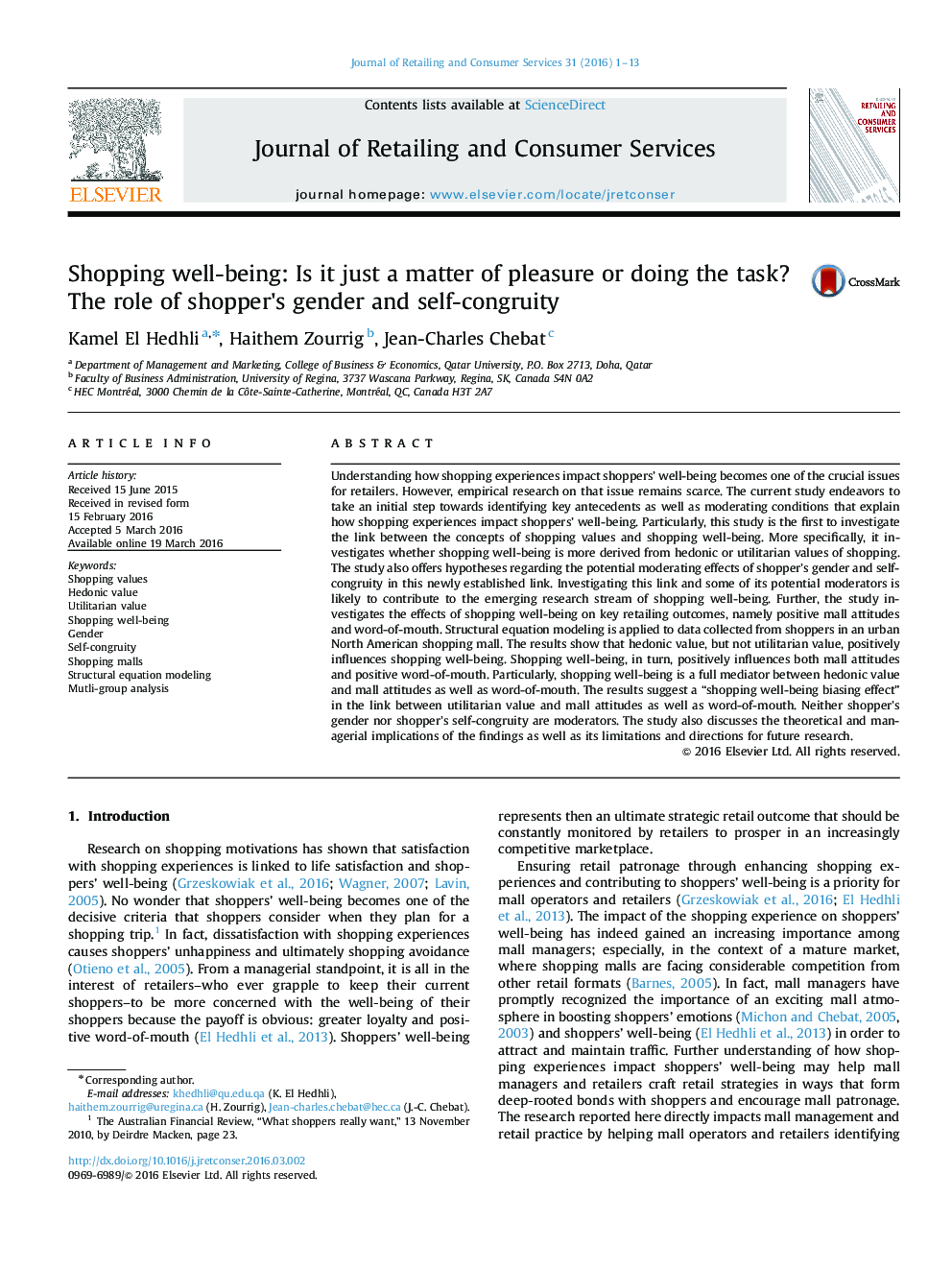| Article ID | Journal | Published Year | Pages | File Type |
|---|---|---|---|---|
| 1028732 | Journal of Retailing and Consumer Services | 2016 | 13 Pages |
•Hedonic value positively influences shopping well-being.•Utilitarian value did not significantly impact shopping well-being.•Gender and self-congruity are not moderators of shopping values on well-being.•Shopping well-being is a full mediator of hedonic value effects on mall patronage.•There is a “shopping well-being bias effect” on utilitarian value effects.
Understanding how shopping experiences impact shoppers’ well-being becomes one of the crucial issues for retailers. However, empirical research on that issue remains scarce. The current study endeavors to take an initial step towards identifying key antecedents as well as moderating conditions that explain how shopping experiences impact shoppers’ well-being. Particularly, this study is the first to investigate the link between the concepts of shopping values and shopping well-being. More specifically, it investigates whether shopping well-being is more derived from hedonic or utilitarian values of shopping. The study also offers hypotheses regarding the potential moderating effects of shopper's gender and self-congruity in this newly established link. Investigating this link and some of its potential moderators is likely to contribute to the emerging research stream of shopping well-being. Further, the study investigates the effects of shopping well-being on key retailing outcomes, namely positive mall attitudes and word-of-mouth. Structural equation modeling is applied to data collected from shoppers in an urban North American shopping mall. The results show that hedonic value, but not utilitarian value, positively influences shopping well-being. Shopping well-being, in turn, positively influences both mall attitudes and positive word-of-mouth. Particularly, shopping well-being is a full mediator between hedonic value and mall attitudes as well as word-of-mouth. The results suggest a “shopping well-being biasing effect” in the link between utilitarian value and mall attitudes as well as word-of-mouth. Neither shopper's gender nor shopper's self-congruity are moderators. The study also discusses the theoretical and managerial implications of the findings as well as its limitations and directions for future research.
